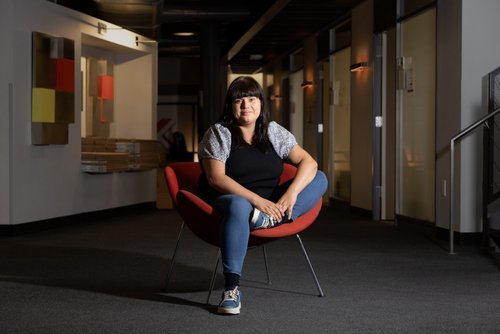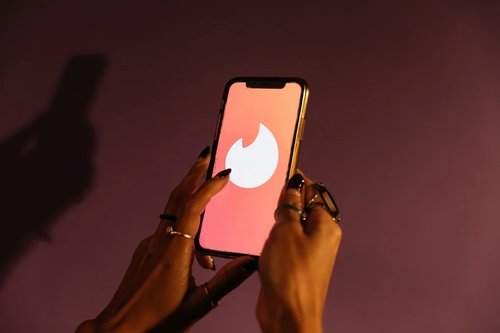How AI coaching can give young job hunters an edge
Dec 12, 2024
4 mins


US Editor at Welcome to the Jungle
Career coaching remains a luxury beyond the reach of most young professionals. Tailored for senior executives—and priced to match—traditional coaching offers little relief to entry-level workers lacking the financial means and professional networks to access it. As a result, many are left navigating a high-stakes job market with generic advice and impersonal online resources.
But what if there was a more innovative, accessible way to get career support? Enter AI coaching: a potential game-changer in the world of job hunting. So, does AI coaching fill the gap, or is something still missing?
500-to-1: The case for AI coaching
“AI doesn’t replace humans. It enhances them, supplements them, and creates access where access didn’t exist before,” says Anna Tavis, Clinical Professor and Chair of the Human Capital Management Department at NYU’s School of Professional Studies.
Traditional career coaching has long been out of reach for many early-stage job hunters—not only because of the high costs but also due to limited access at the university level. Tavis notes that a single college counselor is responsible for as many as 500 students in some universities, leaving little capacity for personalized support. “For those 500 students who don’t have proper counseling, the absence of coaches is where AI comes in and provides the foundation, which is important.”
But even when guidance is available, entry-level candidates face a steep learning curve. Crafting targeted resumes, customizing cover letters, and preparing for interviews are all unfamiliar tasks for those just entering the workforce. According to Tavis, the support required at this stage is often “pretty formulaic,” making it a natural fit for artificial intelligence.
AI tools excel at handling these essential but repeatable tasks, and younger generations are more willing to engage with them. “For a lot of younger professionals, the trust level of working with an AI technology is so much higher than older professionals,” Tavis explains. Unlike older generations who may view AI with skepticism, for fresh job hunters, interacting with an AI coach feels as intuitive as using a messaging app.
“These tools aren’t just convenient—they’re necessary,” says Tavis. “With instant, personalized coaching available directly from their phones, young job seekers can bypass the expense and delays of traditional career coaching, transforming a once-exclusive service into one accessible to all.”
4 ways young job hunters can use AI career coaching
1. Resume feedback and customization
AI-driven career coaching offers instant, tailored feedback for resumes. Users upload resumes and receive immediate, actionable feedback on structure, content, and relevance. Unlike traditional coaching, AI can instantly identify areas for improvement, from formatting to industry-specific keywords. It also enables users to customize their resumes for specific roles—a critical step in modern job applications. It helps applicants tailor their applications for different industries or positions.
2. Interview preparation and mock interview practice
AI can also offer tailored support for interview preparation. These tools film candidates through mock interviews and “provide a breakdown of facial expressions, gestures, and even the length of your response,” says Tavis.
With the ability to simulate role-playing interviews, AI platforms allow candidates to practice responses, refine their delivery, and review video recordings of their performance, and “all of that is already available through these tools,” Tavis adds. Universities are also trying to incorporate these platforms into their career services, with NYU piloting Valence to help students prepare for their first interviews.
3. General coaching and foundational support
From career exploration to navigating entry-level workplace challenges, these tools provide consistent, accessible coaching that helps users build essential job skills. These platforms help users set goals, manage timelines, and stay accountable. Some tools offer personalized check-ins and reminders, allowing candidates to build momentum and stay on track.
Users can even choose the type of coach that suits their needs. “You specify what kind of coach you want… if it’s somebody very strict or somebody very empathetic,” says Tavis. “You can request a specific behavior characteristic from this coach with whom you are most comfortable interacting, just like you would with a human.”
4. Multilingual support and voice-driven AI
Voice-driven AI makes interactions more intuitive. “It’s conversational AI—you don’t need to type. You just talk, and it responds,” says Tavis. This functionality allows job hunters to engage directly with AI tools, creating a more natural and accessible experience. It’s also becoming more accessible thanks to multilingual support and voice-driven AI. “There are about 80 different languages available so that you could be coached in your native language,” says Tavis.
The limits—and promise—of AI coaching
While AI coaching excels at task-oriented support like interview prep and resume feedback, mentorship offers deeper, long-term career guidance and personal growth. Tavis draws a clear distinction: “Coaching is more transactional, focused on achieving specific goals like getting a job or preparing for a presentation. Mentorship, on the other hand, is longer-term, centered on career development and identity building.”
While AI can address immediate coaching needs, Tavis says she “ would still recommend seeking a human mentor while using an AI coach for support, especially for those just starting their careers.”
Still, AI has undeniably changed the landscape for early-stage professionals. As the path to entry-level roles grows more complex, AI coaching offers a bridge that once only executives with deep pockets could access. With AI advancing at breakneck speed, it raises an important question: How far can AI coaching go?
“Young professionals don’t have to go it alone anymore—AI career coaching is like having a career coach in your pocket,” says Tavis. “We as humans need to learn how to get as much help as possible rather than be in denial because it’s here, it’s coming, and it works.”
Photo: Welcome to the Jungle
Follow Welcome to the Jungle on Facebook, LinkedIn, and Instagram and subscribe to our newsletter to get our latest articles every week!

More inspiration: Follow hiring trends

Hilke Schellmann exposes the flaws in AI that control your next job offer
AI tools promise fairness in hiring but often fail. Hilke Schellmann reveals how these flawed systems shape careers and why transparency is crucial.
Dec 23, 2024

Are internships replacing entry-level jobs?
If an entry-level role requires years of experience, young job hunters are already at a disadvantage …
Mar 06, 2024

Swipe right for success: Using dating apps to job hunt and network
Genius networking move or master manipulation?
Jan 30, 2024

Job search in 2024: A candid look at the US job market
Are layoffs coming to an end? Will you finally land a job in your dream industry? Let’s see what the market has in store …
Jan 22, 2024

CEO seeks organized Taurus: China’s crazy recruitment criteria
If you’re not astrologically compatible, the job is not for you.
Dec 14, 2023
The newsletter that does the job
Want to keep up with the latest articles? Twice a week you can receive stories, jobs, and tips in your inbox.

Looking for your next job?
Over 200,000 people have found a job with Welcome to the Jungle.
Explore jobs